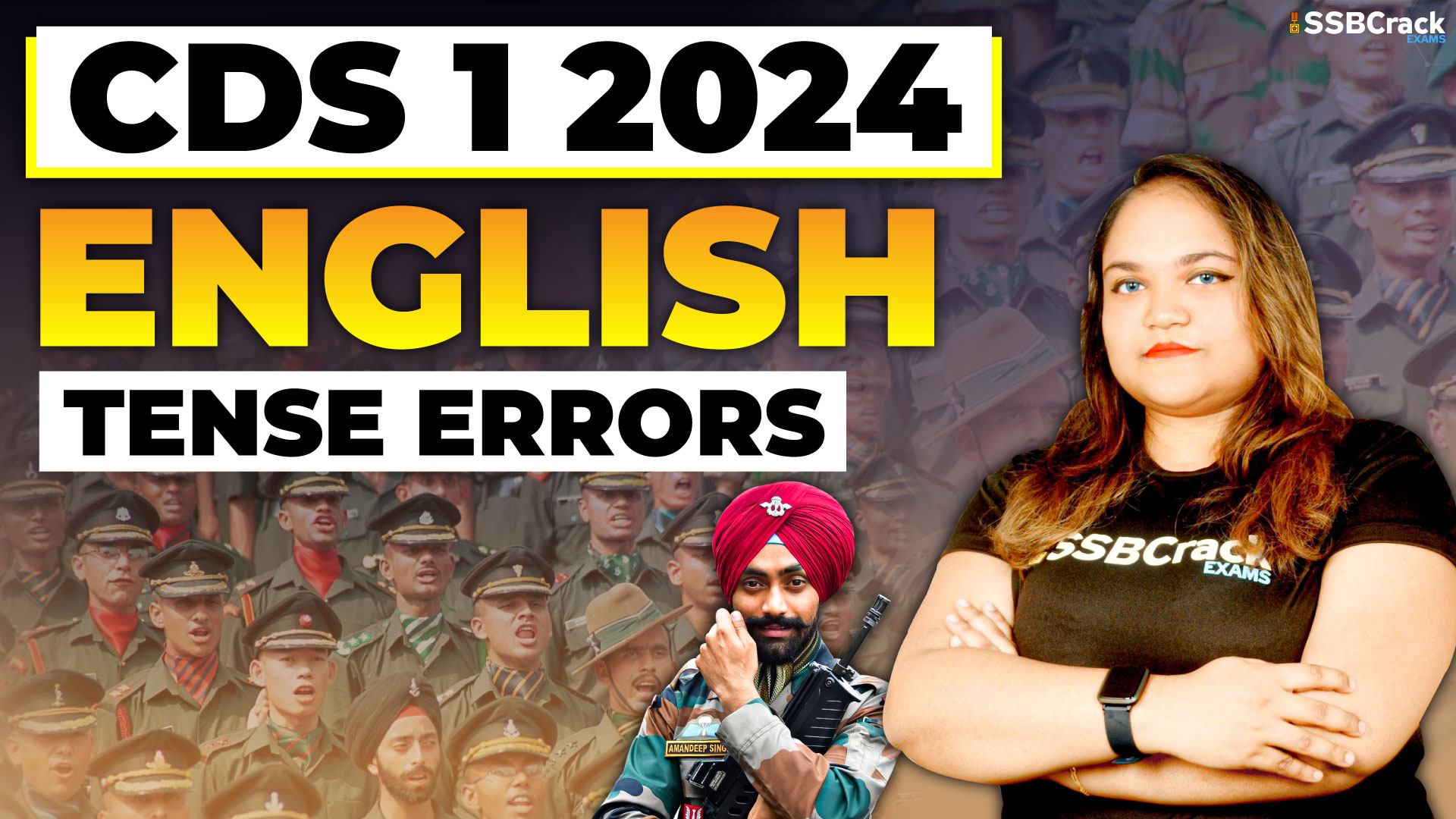The Combined Defence Services (CDS) examination serves as a formidable challenge for individuals with aspirations to serve in the prestigious armed forces. Within the English section of the examination, a comprehensive understanding of grammar, particularly Tense, is not just beneficial but is foundational for effective communication. This article aims to underscore the importance of mastering Tense and shed light on various tense errors that CDS aspirants should be cautious of while preparing for the exam.
- Tense as the Chronicle of Actions: Tense, in the grammatical context, is the tool that enables individuals to convey the timing of actions or states of being. In the military, where precision and clarity in communication are paramount, mastering tense is essential. It ensures that officers can articulate information accurately and maintain a clear temporal sequence in their communication.
- Different Tense Errors to Beware Of:a. Incorrect Verb Forms: CDS aspirants should be vigilant about using the correct verb forms for each tense. Errors such as “He has went” instead of “He has gone” can impact the overall accuracy of a sentence.b. Inconsistent Tense Usage: Maintaining consistency in tense usage is crucial. Aspirants must avoid unnecessary shifts between tenses within a sentence, ensuring a smooth and coherent flow. For example, “She is studying, and she will go to the gym yesterday” should be corrected to “She is studying, and she will go to the gym tomorrow.”c. Misuse of Present Perfect and Simple Past: Understanding the distinction between the present perfect and simple past is vital. Errors like “I have ate lunch two hours ago” should be corrected to “I ate lunch two hours ago.”d. Incorrect Conditional Tense Usage: CDS aspirants must be cautious with conditional tenses. For instance, using “If I will go to the training, I will learn” should be corrected to “If I go to the training, I will learn.”e. Lack of Agreement Between Tense and Time Expressions: Tense errors often occur when there is a mismatch between the tense used and the time expression. For example, “I will see him yesterday” should be corrected to “I will see him tomorrow.”
- Strategies to Avoid Tense Errors:a. In-Depth Knowledge of Tense Rules: Aspirants should have a comprehensive understanding of the rules governing each tense, including when and how to use them.b. Consistent Practice: Regular practice with exercises focused on tense usage helps reinforce the rules and identify potential errors.c. Contextual Analysis: Analyzing the context of a sentence and considering the temporal sequence of events assists in choosing the appropriate tense.d. Regular Revision: Regularly revising tense-related concepts contributes to knowledge retention and the ability to recognize errors more readily.e. Seeking Constructive Feedback: Engaging in peer or instructor feedback on written exercises enhances awareness of potential tense errors and fosters improvement.
- Conclusion:
In conclusion, a robust understanding of tense is indispensable for CDS aspirants seeking success in the English section of the examination. By being vigilant about common tense errors and implementing strategic study practices, aspirants can fortify their linguistic skills and align themselves with the disciplined communication standards expected in military service. A profound grasp of tense is not just a test-taking necessity but a foundational skill that contributes to effective communication in the dynamic and challenging environments inherent to a career in the armed forces.







